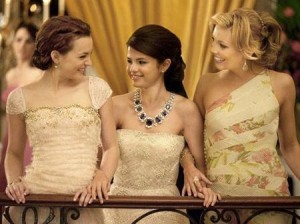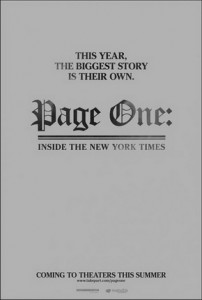Monte Carlo
Posted on June 30, 2011 at 6:10 pm
B| Lowest Recommended Age: | 4th - 6th Grades |
| MPAA Rating: | Rated PG for brief mild language |
| Profanity: | Brief mild language ("hoochie," etc.) |
| Alcohol/ Drugs: | Social drinking |
| Violence/ Scariness: | Some comic peril |
| Diversity Issues: | None |
| Date Released to Theaters: | July 1, 2011 |
It’s the Princess and the Pauper with Disney star Selena Gomez and two Gossip Girls in a story about a Texas waitress who takes the place of a selfish heiress in the glamorous title city. There’s also a touch of Cinderella (though the fairy godmother is unwitting). And it is filled with flouncy pretty dresses and bouncy pop songs to delight tween Disney channel fangirls.
Gomez plays Grace, a high school senior in Texas. She and her best friend Emma (Katie Cassidy) have been saving the tips from their waitress jobs and finally have enough to go to Paris. At the last minute, her mother and her new step-father insist that her step-sister Meg (Leighton Meester) go along. Grace and Meg have a strained relationship that quickly gets much more strained once they arrive. The hotel is dingy and cramped and the tour is brusque and rushed.
The girls are enjoying the top of the Eiffel Tower when they miss the tour bus and get caught in a downpour. When they duck into a luxury hotel for shelter, Grace is mistaken for a spoiled British heiress named Cordelia Winthrop Scott (also Gomez, clearly having much more fun as the imperious young woman with an accent like a “mean Mary Poppins”). Cordelia is supposed to be on her way to Monte Carlo for a fund-raiser to repair her reputation as a party girl. The girls overhear her telling a friend she will leave the hotel without checking out and decide Grace should take her place for one night, rationalizing that the room is already paid for. But one thing leads to another and soon the girls are in Monte Carlo, selecting designer clothes from Cordelia’s luggage so they can go to the ball and meeting charming princes. Well, one is a prince and two are charming.
There’s also a zillion-dollar diamond and sapphire necklace that is not always where it is supposed to be. And it turns out that Cordelia is scheduled to play polo.
“I like the way they come down the stairs,” sighed the 9-year old girl sitting next to me. It doesn’t take much more to enchant the target audience than seeing the girls in their party dresses coming down the steps in slow motion on the way to the ball. But this movie, thankfully gives us a little bit more. The girls each have enough of a personality and story to keep it from getting too silly but not enough to keep it from being a fairy tale, at least the kind that will make dreams come true for some tweens who are too often neglected by the people who make movies.





